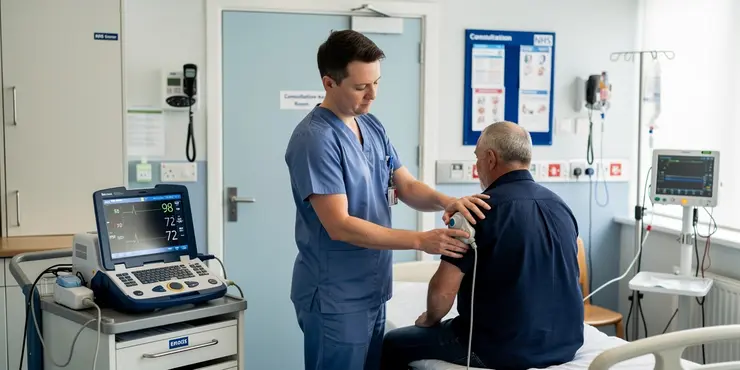
Find Help
More Items From Ergsy search
-
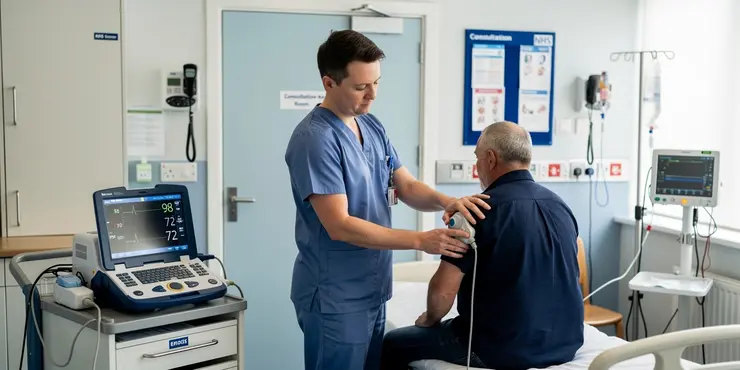
Do defibrillators have any side effects?
Relevance: 100%
-

How effective are defibrillators?
Relevance: 79%
-
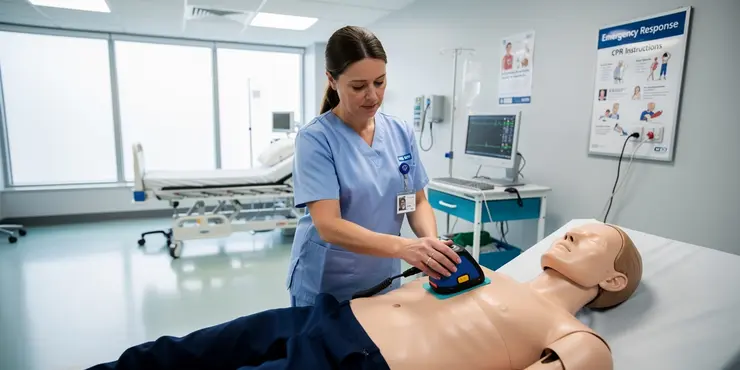
What is a defibrillator?
Relevance: 63%
-
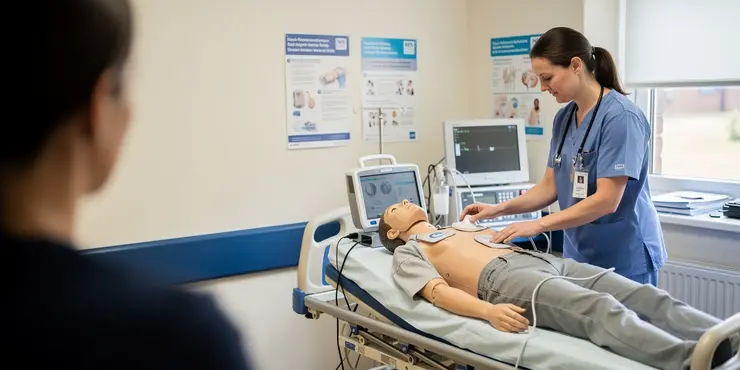
Can a defibrillator restart a stopped heart?
Relevance: 60%
-
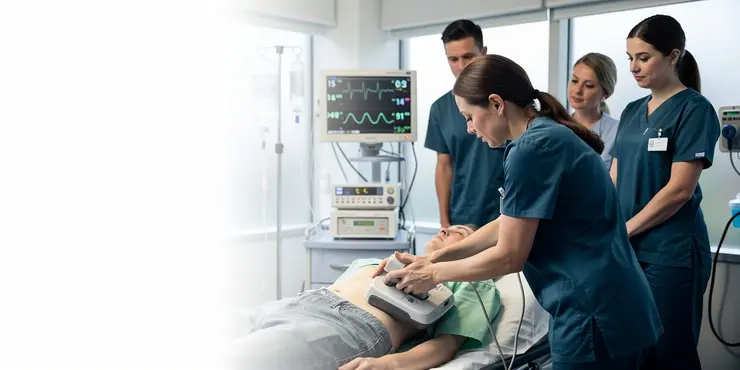
What is the role of a defibrillator in CPR?
Relevance: 58%
-
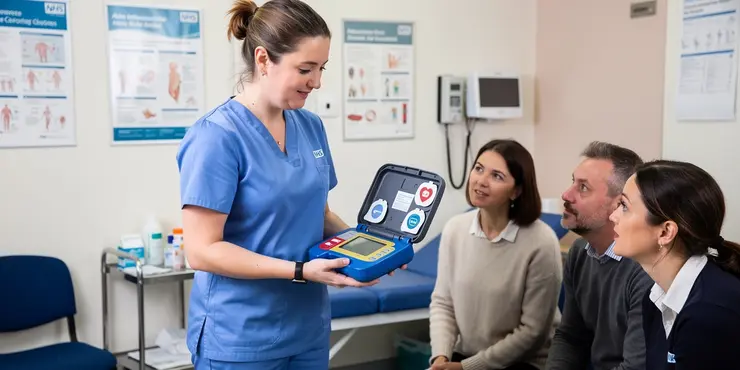
How does a defibrillator work?
Relevance: 57%
-

What are the different types of defibrillators?
Relevance: 57%
-
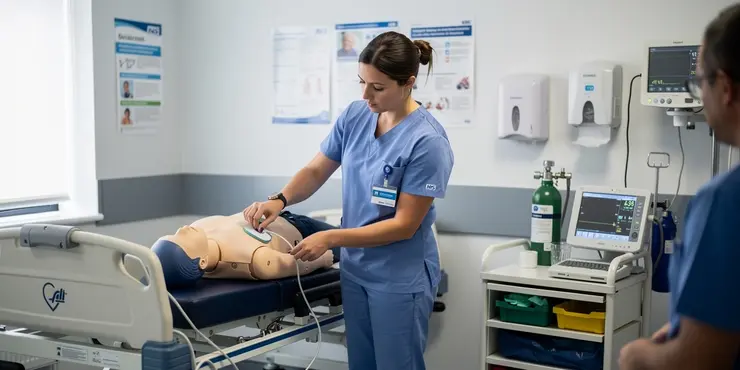
Who can use a defibrillator?
Relevance: 57%
-

What maintenance do defibrillators require?
Relevance: 56%
-
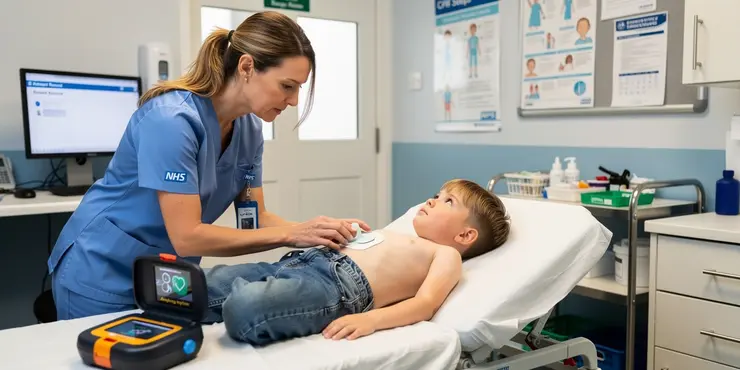
Can defibrillators be used on children?
Relevance: 56%
-
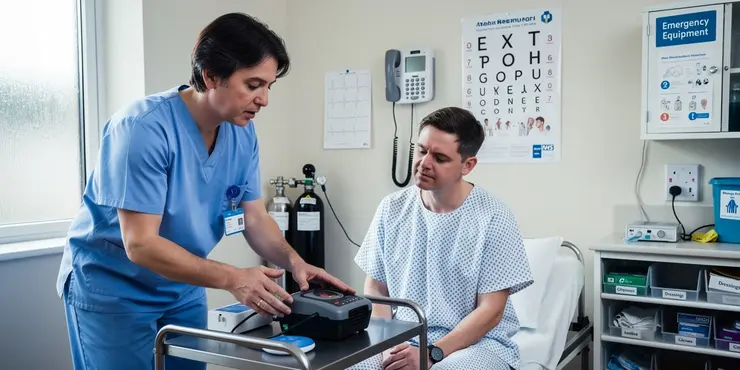
How do you know if a defibrillator is required?
Relevance: 56%
-
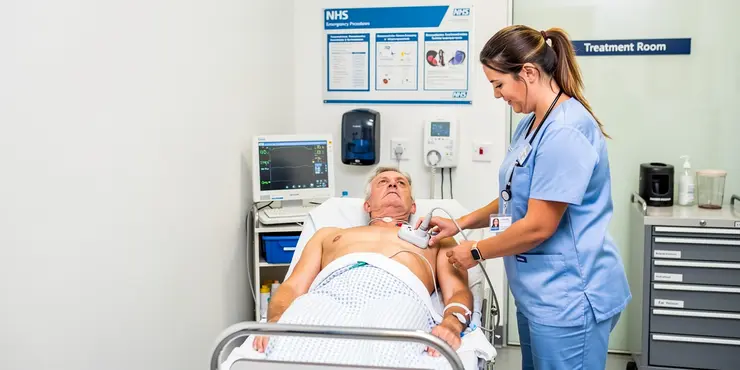
Can you use a defibrillator on a wet person?
Relevance: 55%
-
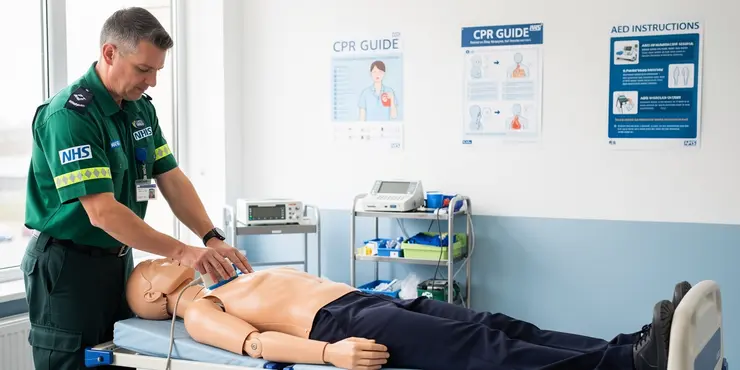
What should you do if a defibrillator is needed?
Relevance: 54%
-
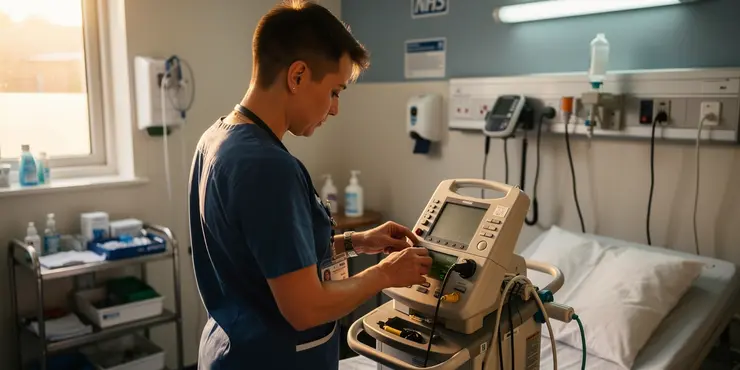
When should I fit new batteries to a defibrillator?
Relevance: 52%
-

What are the side effects of Botox?
Relevance: 51%
-
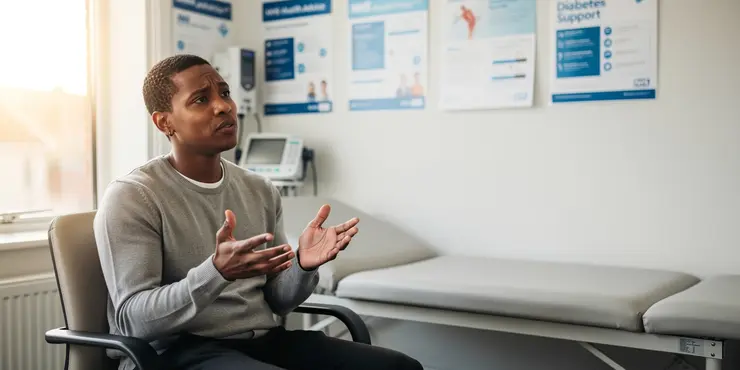
What are the side effects of Ozempic?
Relevance: 50%
-

What are the side effects of Paracetamol?
Relevance: 50%
-
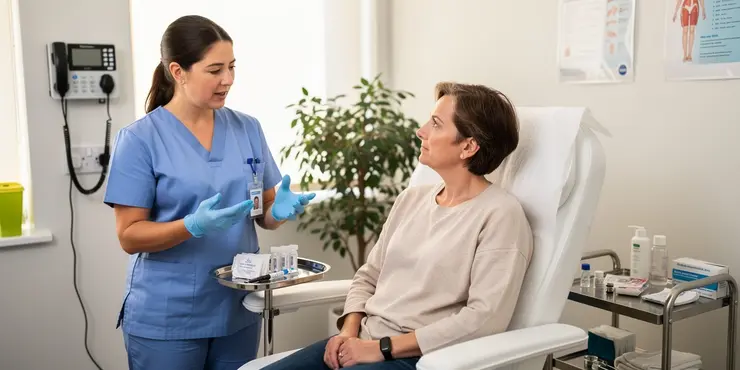
What are the side effects of Botox?
Relevance: 50%
-

What are the side effects of Ibuprofen?
Relevance: 49%
-

What are the side effects of Aspirin?
Relevance: 49%
-

Are there any common side effects of Mounjaro?
Relevance: 48%
-
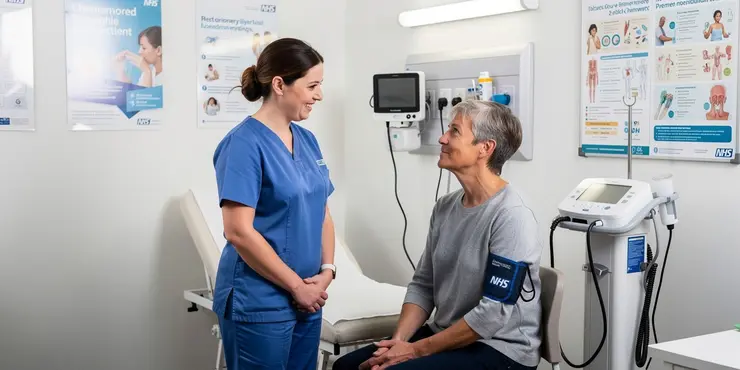
What are the common side effects of Abiraterone?
Relevance: 48%
-

What are the common side effects of vaccines?
Relevance: 48%
-

What are the common side effects of Ozempic?
Relevance: 48%
-
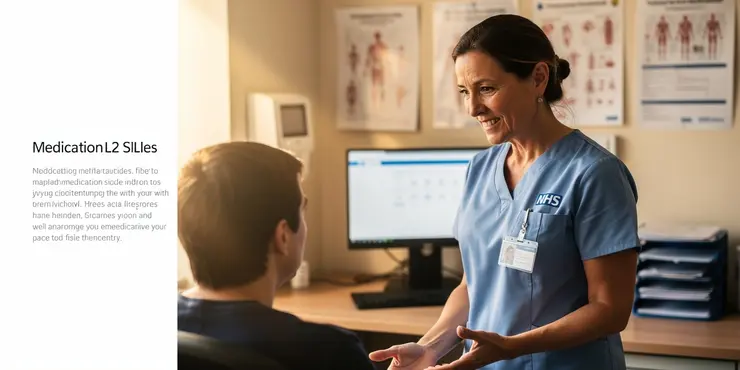
What are common side effects of Baxdrostat?
Relevance: 48%
-

What are common side effects of Wegovy?
Relevance: 48%
-

What are common side effects of CBD?
Relevance: 48%
-
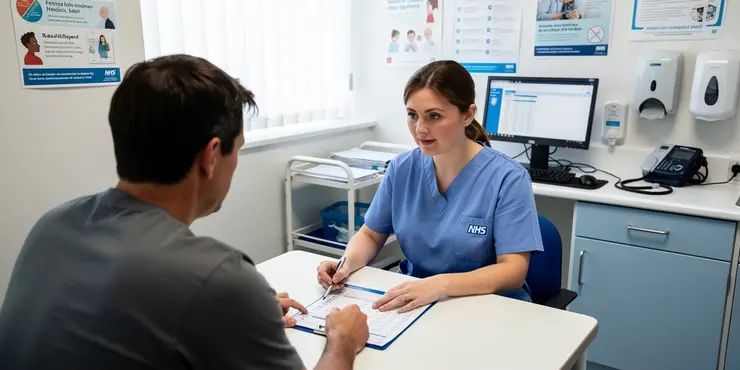
What are common side effects of antibiotics?
Relevance: 48%
-

What are common side effects of Ozempic?
Relevance: 48%
-

Are there any side effects to the flu vaccine?
Relevance: 48%
-

What are the side effects of Paillon treatment?
Relevance: 48%
-

What are the common side effects of ketamine?
Relevance: 47%
-
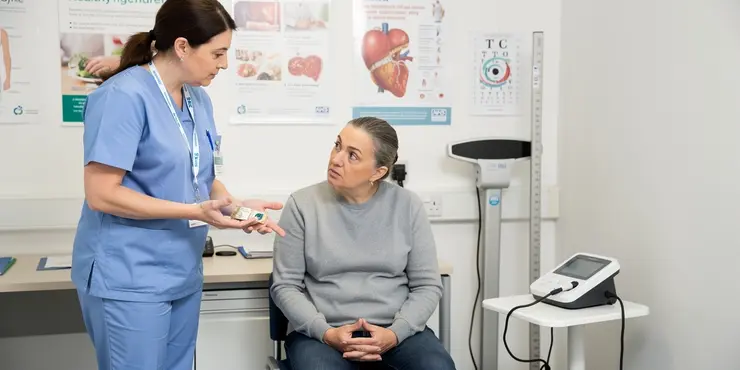
What are the side effects of caffeine pouches?
Relevance: 47%
-

Will I experience side effects from the COVID jab?
Relevance: 46%
-

What are the side effects of bowel cancer treatment?
Relevance: 46%
-
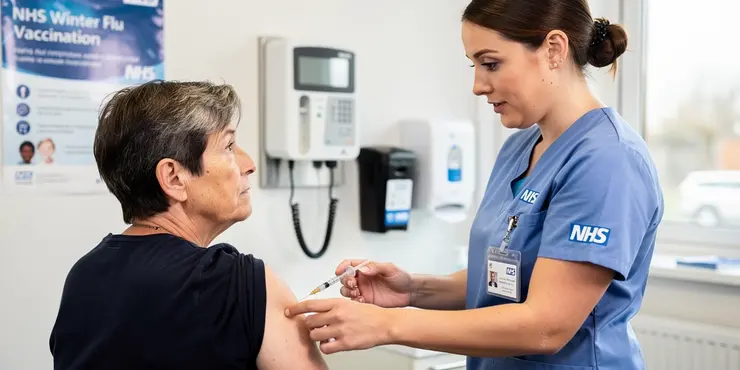
Are there any side effects of the winter flu jab?
Relevance: 46%
-

Is nausea a frequent side effect of Ozempic?
Relevance: 46%
-

Are there any long-term side effects of the COVID jab?
Relevance: 45%
-
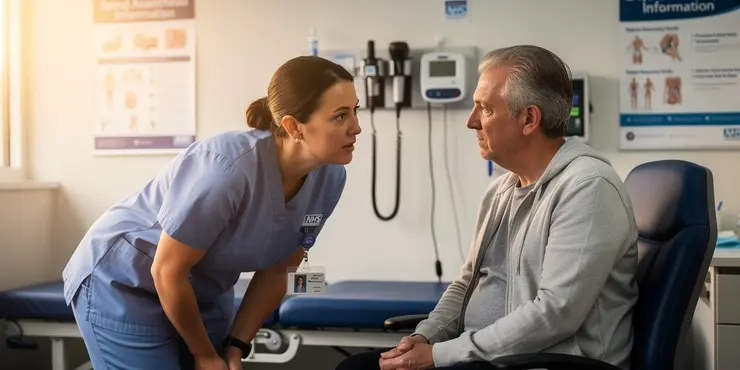
What are the common side effects of spinal anaesthesia?
Relevance: 45%
-

What are the side effects of prostate cancer surgery?
Relevance: 45%
Introduction to Defibrillators
Defibrillators are vital medical devices used to restore normal heart rhythm in cases of cardiac arrest. They deliver a therapeutic dose of electrical energy to the heart. While these devices are extremely beneficial and often life-saving, it’s important to understand that their use can be associated with certain side effects. This article explores some of the potential side effects of defibrillators and what patients might experience.
Immediate Side Effects
When a defibrillator administers an electric shock, the immediate goal is to reset the heart's rhythm. However, this sudden electrical intervention can cause short-term effects. Patients might experience brief pain or discomfort in the chest at the time of the shock. It is also common for individuals to feel disoriented or a sense of unease immediately after receiving the shock, but these symptoms typically subside quickly.
Physical Side Effects
The physical act of delivering an electric shock can sometimes result in burns or other skin injuries in the area where the electrodes make contact with the skin. Although these are generally mild, they may cause discomfort or require minor medical treatment. In some cases, muscle soreness may be experienced, which is due to the forceful contraction of muscles during the shock.
Psychological Effects
Psychological reactions are also possible following the use of a defibrillator. Patients may experience anxiety or emotional distress after being shocked, particularly if they were conscious during the event. This is largely due to the unexpectedness of the shock and the realisation of undergoing a life-threatening situation. These feelings are normal, and support can be provided by healthcare professionals to help manage such reactions.
Device-Specific Side Effects
For patients with implantable defibrillators, such as an implantable cardioverter-defibrillator (ICD), there are additional considerations. Some individuals may experience infection at the implantation site, or there might be device malfunctions, although these are less common. It is crucial for patients with ICDs to have regular check-ups to ensure the device is functioning correctly and address any issues promptly.
Conclusion
Defibrillators, while capable of causing some side effects, are generally safe and indispensable in critical cardiac care. The benefits of using a defibrillator to save a life far outweigh the potential risks associated with their use. Healthcare providers take precautions to minimise adverse effects and provide patients with comprehensive support to tackle any side effects experienced. If you are concerned about defibrillator use, consult your healthcare provider for detailed advice tailored to your individual health needs.
Introduction to Defibrillators
Defibrillators are important machines. They help fix the heart's beat when someone has a heart problem. They do this by sending an electric shock to the heart. These machines can save lives, but they might also cause some problems. This article will talk about the problems that can happen when defibrillators are used.
Immediate Side Effects
When the defibrillator gives a shock, it tries to fix the heart's beat right away. This can cause short-term problems. A person might feel a quick pain or a funny feeling in their chest. They might also feel confused or worried right after the shock. But these feelings usually go away fast.
Physical Side Effects
The electric shock can also cause some physical problems. Sometimes, there can be small burns on the skin where the shock was given. These burns don't usually hurt much but might need a little care. A person might also feel that their muscles are sore after the shock. This happens because the shock makes the muscles tighten really hard.
Psychological Effects
After getting shocked by a defibrillator, a person might feel worried or upset. This can happen especially if they were awake during the shock. Feeling these emotions is normal. They happen because the situation was scary. Doctors and nurses can help if a person feels sad or worried.
Device-Specific Side Effects
Some defibrillators stay inside the body. They are called implantable defibrillators or ICDs. If someone has an ICD, other problems can happen. The place where the ICD is put in might get infected, or the ICD might not work right. But these problems don't happen often. People with ICDs should visit the doctor regularly to check the device. This helps find and fix any problems early.
Conclusion
Defibrillators can cause some problems, but they are safe and very important for the heart. The good things they do, like saving lives, are much more important than the bad things that might happen. Doctors try hard to make sure any problems are small. They also help patients with any problems they do have. If you have questions about defibrillators, talk to your doctor. They can give you advice that is right for you.
Frequently Asked Questions
Can using a defibrillator cause harm to a person?
Defibrillators can cause minor burns or skin irritation at the site of the shock pads, but these are usually minor compared to the benefits of restoring a normal heart rhythm.
Are there any side effects for bystanders when a defibrillator is used?
Bystanders are generally at no risk, provided they do not touch the patient during a shock delivery. Defibrillators are safe when used correctly.
Can a defibrillator affect pacemakers or other implanted devices?
Yes, extra care is needed when applying pads on patients with pacemakers, but most modern defibrillators are designed to minimize interference.
Is it possible to deliver too many shocks with a defibrillator?
Delivering repeated shocks is guided by defibrillator protocols, and improper use without following these guidelines can potentially cause more harm.
What should be considered to minimize side effects of defibrillator use?
Ensure proper placement of electrodes, follow instructional prompts, and avoid touching the patient during shock delivery.
Do defibrillators cause any pain to the patient?
Defibrillation can be painful, but the patient is typically unconscious during cardiac arrest, minimizing awareness of pain.
Are there any psychological side effects after a defibrillator use?
Some patients may experience anxiety or stress after resuscitation but these are more related to the event rather than the device itself.
Can the use of defibrillators in children cause side effects?
Pediatric-specific pads and protocols should be used to ensure safety and minimize any side effects when using defibrillators on children.
Is there a risk of burns from defibrillator use?
There is a small risk of superficial burns at the pad site, but this is relatively minor compared to the benefits.
What long-term side effects might occur after defibrillation?
The most important outcome is survival, and long-term effects are rare and usually related to the underlying condition rather than defibrillation.
Can a defibrillator cause heart damage?
Defibrillators are designed to save lives by restoring normal heart rhythm. The electric shock can occasionally cause minimal heart muscle injury, but this is rare.
Could a defibrillator shock lead to other health complications?
Defibrillation is lifesaving, but improper use could theoretically cause muscle injury or discomfort, yet these are outweighed by the benefit of restoring cardiac function.
How can side effects be reduced when using a defibrillator?
Training, proper placement of pads, and adherence to the device guidelines are crucial to minimizing side effects.
Could defibrillator use result in death if used incorrectly?
Defibrillators are safety designed, but inappropriate or untimely use could complicate resuscitation efforts. It is important to follow the device instructions and CPR guidelines.
Is there any risk of contamination when using a defibrillator?
Standard hygiene protocols should be followed, but there is no inherent contamination risk from the defibrillator.
Does skin type affect defibrillator-related side effects?
Sensitive skin might be more prone to irritation or burns, but this does not outweigh the lifesaving potential of defibrillators.
Can defibrillator shocks affect consciousness recovery?
Defibrillation aims to restore normal heartbeat. While shock can be startling, it is crucial in resuscitative efforts.
Are there any neurological side effects from defibrillator shocks?
Quite rare, but neurological outcomes depend on the duration of cardiac arrest rather than defibrillation itself.
What training is needed to reduce defibrillator side effects?
CPR and AED certification, awareness of the device's functionality, and adherence to AED instructions help minimize side effects.
Do defibrillators have side effects for patients with skin conditions?
Those with certain skin conditions might experience more irritation, but this should not prevent their use during emergencies.
Can a defibrillator hurt someone?
Defibrillators can sometimes give small burns or make the skin sore where the pads touch the skin, but this is a small problem compared to how they help the heart beat properly again.
Do people standing nearby get hurt when someone uses a defibrillator?
If you are watching, it is usually safe. Just don’t touch the person getting a shock. Defibrillators are safe if you use them the right way.
Can a defibrillator harm pacemakers or other devices inside the body?
A defibrillator is a machine that helps when a person's heart stops. It gives a strong electrical shock to make the heart start again.
Some people have a pacemaker or other medical devices inside their body that help their heart. These devices can be sensitive to electrical shocks.
If you use a defibrillator on a person with a pacemaker, it might affect how their pacemaker works.
It is best to call for medical help and follow their guidance.
Using a defibrillator safely is very important. You can ask a doctor or nurse to show you how to use it without harming any implanted devices.
There are online videos and guides that can help you learn more.
Yes, you need to be careful when putting pads on people with pacemakers. But most new machines are made to help keep problems small.
Can you use a defibrillator too much?
When you use a machine called a defibrillator, you must follow the instructions very carefully. If you do not follow them, you could hurt someone instead of help them.
How can we make defibrillator use safer?
Make sure to put the pads in the right place, listen to the instructions, and don't touch the person when the machine gives a shock.
Do defibrillators hurt the patient?
Using a defibrillator can hurt, but the person is usually not awake when their heart stops, so they don't feel much pain.
Can using a defibrillator affect how I feel?
Using a defibrillator might change how you feel. Some people can feel scared or worried after.
It can help to talk to someone about these feelings. A doctor, nurse, or friend can help. Writing in a diary can also make you feel better.
Some people might feel worried or stressed after being saved in an emergency. This is because of what happened, not because of the machine that helped them.
Can using defibrillators on children cause problems?
When using defibrillators on children, it is important to use special pads and follow child-safe rules. This helps keep children safe and reduces any possible problems.
Can a defibrillator cause burns?
A defibrillator helps when someone's heart stops. It sends an electric shock to the heart. Sometimes, this can burn the skin a little.
To be safe, follow these steps:
- Put the sticky pads on bare skin, not on clothes.
- Make sure the skin is dry. Wipe away any water or sweat.
- Use special gels or creams if told to by a doctor.
- Ask an adult for help if you are unsure.
Reading tools like text-to-speech can help read words out loud for better understanding.
There is a tiny chance that the pad might make a small burn on your skin. But this is not very serious and the good things it does are much more important.
What happens after using a defibrillator for a long time?
This guide will help you understand. A defibrillator is a machine that helps the heart start beating again. It is used when someone's heart stops. Using a defibrillator is usually safe, but sometimes there can be some effects over time. Here is what you need to know:
- The skin where the pads were placed might feel sore.
- There might be some redness or marks on the skin.
- Some people might feel a bit unwell for a little while.
It is a good idea to talk to a doctor if you have worries. They can help make sure everything is okay.
Using simple pictures or stories can make learning about health fun and easy.
The most important thing is staying alive. Long-term problems do not happen often. If they do, it is usually because of a health problem you already had, not because of defibrillation.
Using these tools can help:
- Reading out loud
- Using a dictionary for hard words
- Highlighting key points
Can a defibrillator hurt your heart?
Defibrillators are machines that help save lives. They make the heart beat in a normal way again. Sometimes, they can cause a small hurt to the heart, but this does not happen often.
Can a defibrillator shock cause other health problems?
A defibrillator is a machine. It helps when someone's heart stops.
Sometimes, using a defibrillator can cause other problems.
Doctors know how to use defibrillators safely. They will help you.
If you have questions, talk to a doctor.
You can also ask someone you trust to help understand more.
Using a defibrillator can save lives. It helps the heart start beating again. Sometimes, if used wrong, it might cause muscle pain. But it is more important that it helps the heart work again.
How can we make using a heart zapper safer?
A heart zapper is a machine used to help someone's heart beat correctly. Sometimes, it can cause problems, called side effects.
Here's how to make it safer:
- Practice: People using the machine should have training.
- Follow instructions: Always read and follow the guide that comes with it.
- Right placement: Put the patches (pads) on the right spots on the body.
- Check surroundings: Make sure no one is touching the person or any water is nearby when using it.
Please ask a grown-up or a doctor for help if you're unsure. They can explain more.
It's important to learn how to use the machine, put the pads in the right spot, and follow the instructions. This helps to make sure there are fewer problems.
Here are some ways to make learning easier:
- Ask someone to help show you how to use the machine.
- Watch videos that explain what to do step by step.
- Use pictures to guide you on where to place the pads.
Can someone die if a defibrillator is used the wrong way?
Defibrillators are made to be safe. But if you use them wrong or at the wrong time, it might make helping someone harder. Always follow the instructions on the device. Also, follow CPR guidelines.
Can using a defibrillator be dangerous?
A defibrillator is a machine that helps start a person’s heart if it stops.
It is safe to use a defibrillator. But, make sure to follow these steps:
- Check for water. Keep the person and defibrillator dry.
- Do not touch the person when the defibrillator is working.
- Follow the voice instructions from the defibrillator.
If you are unsure, ask for help or call emergency services.
Keep things clean, but don't worry about the defibrillator spreading germs.
Does Your Skin Type Change How a Heart Machine Works on You?
People with sensitive skin might feel irritation or get small burns, but using a defibrillator can save a life, which is very important.
Do defibrillator shocks help someone wake up?
Defibrillation helps to make the heart beat normal again. The shock might feel surprising, but it is very important to help someone in an emergency.
Can a defibrillator shock harm the brain?
A defibrillator is a machine that helps the heart beat normally. Sometimes, it gives a strong shock to help the heart. This can be a little scary.
It's important to know if these shocks can hurt the brain. Talk to your doctor about any worries you have.
Use tools like videos or picture books to help you understand more about defibrillators and their effects.
It doesn't happen often, but what happens to the brain depends more on how long the heart stops, not just on using a defibrillator.
Tools like picture dictionaries or audiobooks can help make understanding easier.
How can people train to use a defibrillator safely?
Using a defibrillator needs special training. This helps keep people safe.
Here is what can help:
- Take a first aid class. This shows how to use a defibrillator.
- Practice with a dummy defibrillator. This helps you learn without worry.
- Watch videos. They show the steps to use a defibrillator safely.
- Ask questions. Talk to experts if you need more help.
These tools make it easier to learn and use a defibrillator safely.
Getting a CPR and AED certificate, knowing how the AED works, and following the AED's instructions can help keep you safe.
Can defibrillators cause problems for people with skin issues?
A defibrillator is a machine that helps if your heart stops. It gives a strong electric shock to get the heart working again.
If you have a skin problem, like a rash or sore skin, the defibrillator might cause extra irritation or make it worse.
It is important to tell the doctor if you have skin issues. The doctor can then check the skin carefully and give advice.
If you have questions, it is a good idea to ask a nurse or doctor who can explain things clearly and slowly.
Using simple explanations, pictures, or videos can also help in understanding how defibrillators work and what to expect.
People with some skin problems might feel more itchy or sore. But they should still use it when there is an emergency.
Useful Links
This website offers general information and is not a substitute for professional advice.
Always seek guidance from qualified professionals.
If you have any medical concerns or need urgent help, contact a healthcare professional or emergency services immediately.
Some of this content was generated with AI assistance. We’ve done our best to keep it accurate, helpful, and human-friendly.
- Ergsy carfully checks the information in the videos we provide here.
- Videos shown by Youtube after a video has completed, have NOT been reviewed by ERGSY.
- To view, click the arrow in centre of video.
- Most of the videos you find here will have subtitles and/or closed captions available.
- You may need to turn these on, and choose your preferred language.
- Go to the video you'd like to watch.
- If closed captions (CC) are available, settings will be visible on the bottom right of the video player.
- To turn on Captions, click settings .
- To turn off Captions, click settings again.
More Items From Ergsy search
-

Do defibrillators have any side effects?
Relevance: 100%
-

How effective are defibrillators?
Relevance: 79%
-

What is a defibrillator?
Relevance: 63%
-

Can a defibrillator restart a stopped heart?
Relevance: 60%
-

What is the role of a defibrillator in CPR?
Relevance: 58%
-

How does a defibrillator work?
Relevance: 57%
-

What are the different types of defibrillators?
Relevance: 57%
-

Who can use a defibrillator?
Relevance: 57%
-

What maintenance do defibrillators require?
Relevance: 56%
-

Can defibrillators be used on children?
Relevance: 56%
-

How do you know if a defibrillator is required?
Relevance: 56%
-

Can you use a defibrillator on a wet person?
Relevance: 55%
-

What should you do if a defibrillator is needed?
Relevance: 54%
-

When should I fit new batteries to a defibrillator?
Relevance: 52%
-

What are the side effects of Botox?
Relevance: 51%
-

What are the side effects of Ozempic?
Relevance: 50%
-

What are the side effects of Paracetamol?
Relevance: 50%
-

What are the side effects of Botox?
Relevance: 50%
-

What are the side effects of Ibuprofen?
Relevance: 49%
-

What are the side effects of Aspirin?
Relevance: 49%
-

Are there any common side effects of Mounjaro?
Relevance: 48%
-

What are the common side effects of Abiraterone?
Relevance: 48%
-

What are the common side effects of vaccines?
Relevance: 48%
-

What are the common side effects of Ozempic?
Relevance: 48%
-

What are common side effects of Baxdrostat?
Relevance: 48%
-

What are common side effects of Wegovy?
Relevance: 48%
-

What are common side effects of CBD?
Relevance: 48%
-

What are common side effects of antibiotics?
Relevance: 48%
-

What are common side effects of Ozempic?
Relevance: 48%
-

Are there any side effects to the flu vaccine?
Relevance: 48%
-

What are the side effects of Paillon treatment?
Relevance: 48%
-

What are the common side effects of ketamine?
Relevance: 47%
-

What are the side effects of caffeine pouches?
Relevance: 47%
-

Will I experience side effects from the COVID jab?
Relevance: 46%
-

What are the side effects of bowel cancer treatment?
Relevance: 46%
-

Are there any side effects of the winter flu jab?
Relevance: 46%
-

Is nausea a frequent side effect of Ozempic?
Relevance: 46%
-

Are there any long-term side effects of the COVID jab?
Relevance: 45%
-

What are the common side effects of spinal anaesthesia?
Relevance: 45%
-

What are the side effects of prostate cancer surgery?
Relevance: 45%


